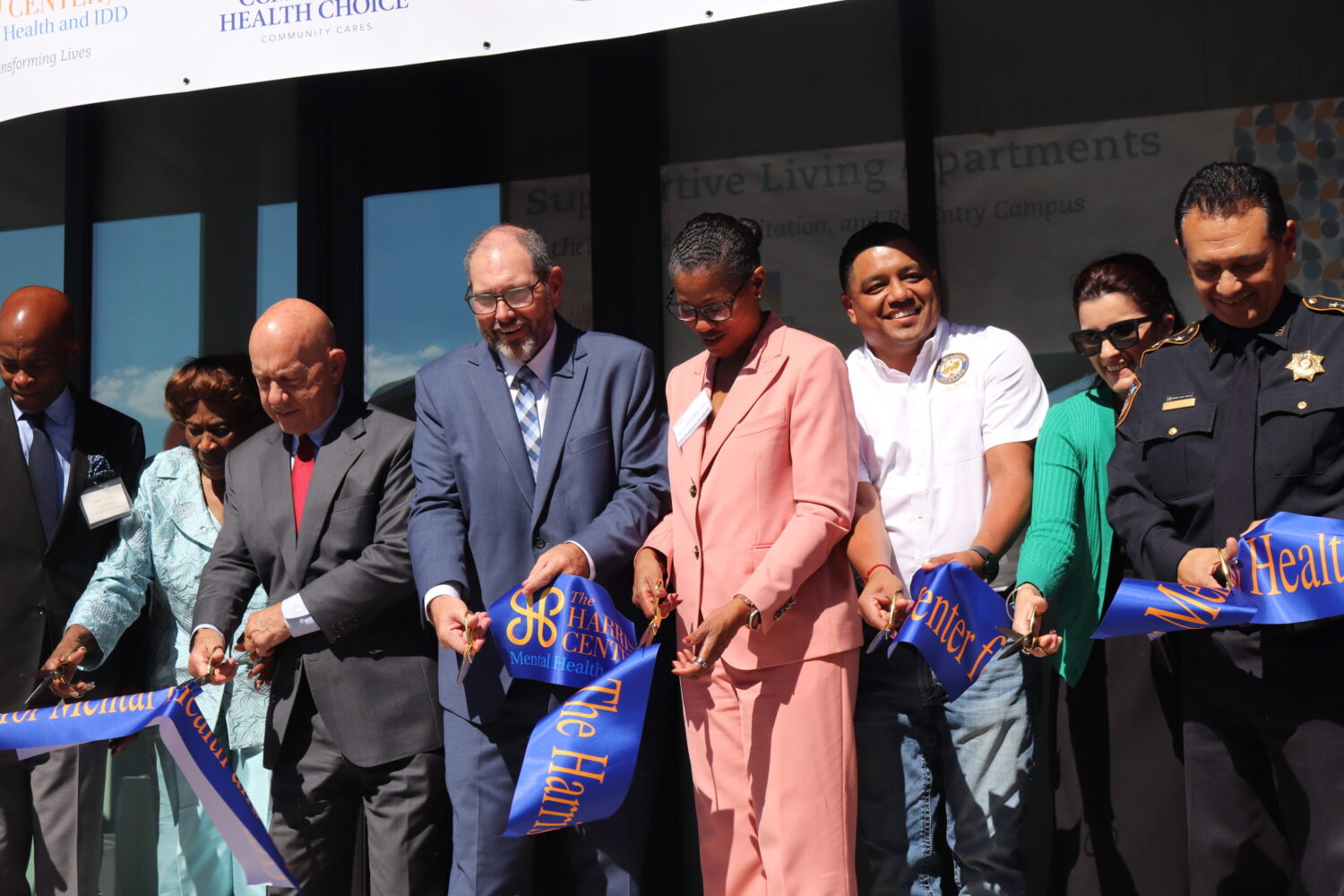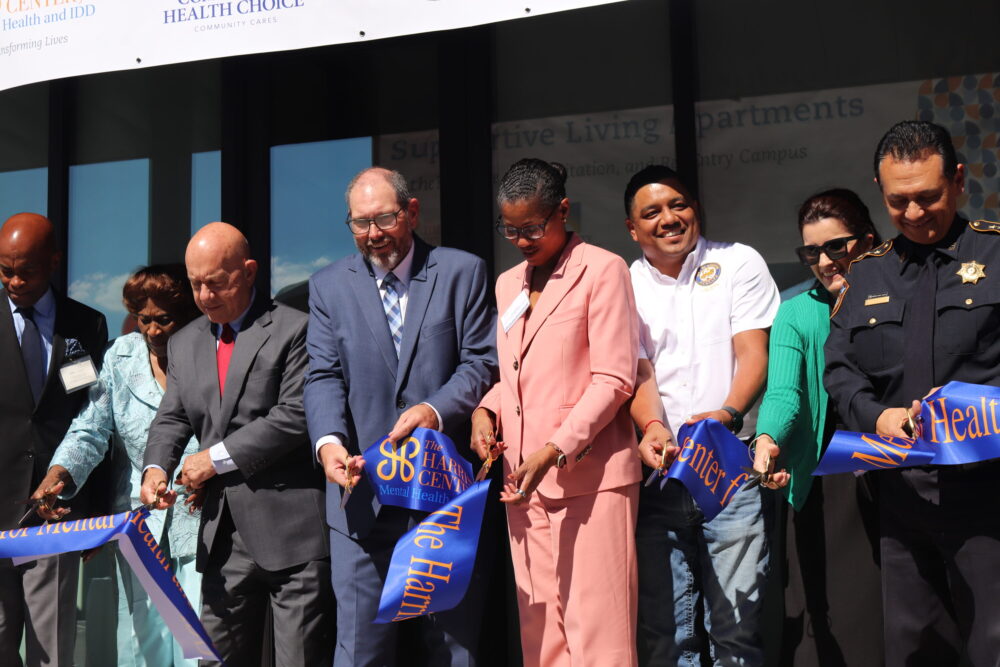Dominic Anthony Walsh/Houston Public Media
Officials with the city of Houston and Harris County celebrate the opening of a 26-unit apartment complex for people with mental health illnesses on Monday, Oct. 13, 2025.
Houston and Harris County officials on Monday celebrated the opening of a $12 million, 26-unit apartment building for people with serious mental health illnesses.
The apartments are located in Southeast Houston next to a service center operated by The Harris Center for Mental Health and IDD, the county’s state-designated Local Mental Health Authority. They will house people who have “a serious mental illness and are also at the intersection, often, of criminal justice involvement and being unhoused,” said Harris Center CEO Wayne Young.
“This really does fill a gap for individuals that really have a hard time finding a stable place to live, especially as a part of a treatment and recovery process,” Young said. “And so the vision is to be able to walk through a continuum of treatment and recovery and rehabilitation process, to ultimately have this be kind of that last stop, so we can help support them into ultimately transitioning into the community, living fully independently.”
The $12 million came from a variety of sources, including the city of Houston, Harris County, the Texas Health and Human Services Commission, and nonprofit Community Health Choice.
The opening comes as the city of Houston ramps up its own efforts to address homelessness. The plans for the Harris Center’s apartments, which preceded the renewed initiative under Mayor John Whitmire, fit into his vision for addressing street homelessness.
Nearly one year ago, Whitmire proposed a “city-sponsored encampment” as part of the strategy. A month later, the city unveiled an ambitious $70 million annual plan that did not specifically include an encampment.
“It was not an encampment, as you envision,” Whitmire told Houston Public Media on Monday. “It was an encampment very similar to this — bringing the homeless together. … It was mainly the term being used to allow people to congregate, share services and live together.”
The city is exploring a parallel approach in a proposed “superhub” for homeless people in East Downtown. The Houston City Council is expected to vote Wednesday on the $16 million purchase of a facility at 419 Emancipation Ave., where 75 rooms could hold 150 to 225 beds.
The proposed superhub is already facing pushback from some residents, who have raised concerns about safety and the proximity to sports venues and the convention district. Ahead of the city council vote, a group of them will hold a news conference Tuesday evening organized by former local TV reporter Wayne Dolcefino, who issued a news release raising the spectre of “these problematic homeless folks wandering around the stadiums during the World Cup” as the city is slated to host international soccer matches in the summer of 2026.
Larry Satterwhite, Whitmire’s director of public safety and homeland security, said the site had been chosen “because it’s close to where all the real problems have been historically in Houston.” As the city ramps up enforcement of rules intended to get homeless people off sidewalks, he said, the superhub is a place for them to go.
“We’re going to need locations that we can take them in, wrap our arms around them, get them the right kind of care, get them the right kind of treatment, so that we can actually graduate them out of that and get them into housing and a future life,” Satterwhite said. “Everywhere that we operate is always going to be like, ‘Well, you know, I want you to do that, and I’m all in, but maybe not here’ — and I don’t know where that ‘here’ is, because the problem is everywhere.”
At the Harris Center’s new apartment building, the first residents are expected to arrive in the coming weeks, according to Young. Many of them will come from the neighboring building, the Harris Center’s Jail Diversion Center. It contains a 24-bed Hospital to Home program for homeless people discharged from psychiatric hospitals, as well as 18 beds for a step-down program for people who have been in the state’s psychiatric hospital for at least a year. Hospital to Home will be “one of the big feeder programs for these apartments,” Young said.
The typical stay is expected to last “somewhere around 12 to 24 months.” The budget is not based on tenants paying rent, though Young said, “Our hope is to get them to a place where they can support themselves when they leave … that means learning how to go to the grocery store. It means learning how to navigate public transportation. It means learning how to pay rent and having a checkbook and all those kinds of things.”


